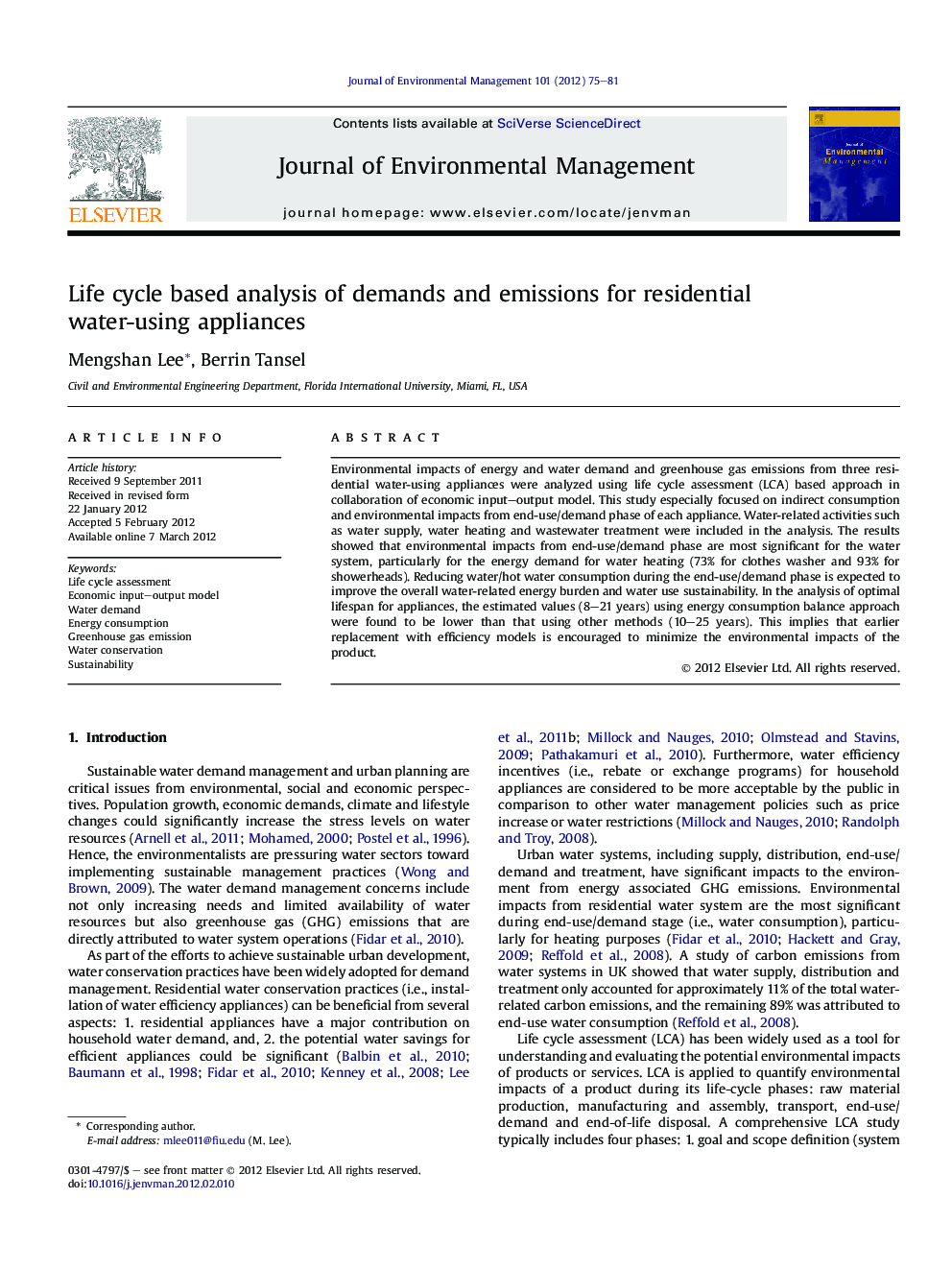| Article ID | Journal | Published Year | Pages | File Type |
|---|---|---|---|---|
| 1056838 | Journal of Environmental Management | 2012 | 7 Pages |
Environmental impacts of energy and water demand and greenhouse gas emissions from three residential water-using appliances were analyzed using life cycle assessment (LCA) based approach in collaboration of economic input–output model. This study especially focused on indirect consumption and environmental impacts from end-use/demand phase of each appliance. Water-related activities such as water supply, water heating and wastewater treatment were included in the analysis. The results showed that environmental impacts from end-use/demand phase are most significant for the water system, particularly for the energy demand for water heating (73% for clothes washer and 93% for showerheads). Reducing water/hot water consumption during the end-use/demand phase is expected to improve the overall water-related energy burden and water use sustainability. In the analysis of optimal lifespan for appliances, the estimated values (8–21 years) using energy consumption balance approach were found to be lower than that using other methods (10–25 years). This implies that earlier replacement with efficiency models is encouraged to minimize the environmental impacts of the product.
► Environmental impacts were assessed using life cycle assessment approaches. ► Water system process are included in the analysis. ► Environmental impacts are most significant in water heating stage. ► Early replacement with efficiency models is encouraged.
